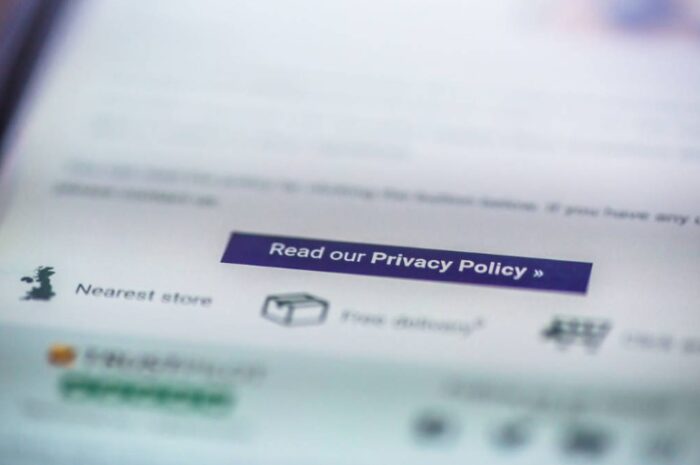
A privacy policy is a statement or legal document that outlines how an organization collects, stores, uses, and shares the personal information of its customers. It is a written agreement between the entity or individual collecting customer data and the customer. A privacy policy also specifies how customers can access their data, as well as what choices they have concerning how their data is used.
The purpose of a privacy policy is to protect both parties from potential disputes or misunderstandings over the use of personal information. By providing clear instructions on how customer data will be collected and used by an organization, individuals can make informed decisions about whether to provide their information in the first place.
Furthermore, if there are changes to an organization’s policies regarding personal data processing practices, these must be clearly outlined in the privacy policy so that customers can be aware of them. The privacy policy template such as the privacy policy Australia template is designed to help businesses create a comprehensive and legally compliant privacy policy document.
Privacy policies usually include details such as:
- What types of personal information are collected (e.g., name, address)
- How this personal information will be used (e.g., for marketing purposes)
- How long it will be stored (e.g., indefinitely)
- The rights customers have concerning accessing and deleting their data
Purpose of a Privacy Policy

In the digital age, having a Privacy Policy is an essential component of any business. A Privacy Policy outlines how a company collects, stores, and uses personal data that customers provide when they interact with the business. It is also used to explain what customers can expect when they share their data with the company.
The main purpose of a Privacy Policy is to inform customers about how their personal information will be handled and protected by the business. By providing this information upfront, businesses help build trust with potential customers so they feel more comfortable interacting with them online or in person. It also serves to protect businesses from potential legal risks if customer data isn’t properly handled or disclosed following applicable laws and regulations.
A comprehensive Privacy Policy should include information about what type of data is collected from customers, how it’s stored and secured, who has access to it, and how long it’s kept before being deleted or archived.
Additionally, businesses should make sure their Privacy Policies clearly state what customer data may be used for (e.g., marketing purposes) as well as whether any third parties may have access to that information (e.g., analytics companies). Customers should also be informed about where they can find more detailed information if needed
Types of Data Collected by Companies

Data is the lifeblood of companies, but not all data is created equal. Different types of data are collected by companies for different purposes and uses. Understanding the different types of data and how they can be used is essential to understanding how businesses operate in today’s digital world.
Structured Data
Structured data refers to information that has been organized into a standardized format, such as rows and columns, making it easy to search, sort, and store. This type of data typically comes from sources like databases or spreadsheets and includes information like customer contact details or sales figures. Companies use this type of data for trend analysis, forecasting, and decision-making.
Unstructured Data
Unstructured data does not have any predefined structure or format which means it cannot be easily searched or sorted in a database. Examples include web page content, social media posts, images, and videos which contain valuable insights but need to be analyzed using natural language processing (NLP) techniques to extract meaning from them. Companies often use this type of data for customer sentiment analysis or market research purposes.
How Companies Use the Data They Collect

Data collection is an increasingly common practice among companies. Data can provide valuable insights into customer behavior, preferences, and buying habits, enabling businesses to make informed decisions and develop strategies that will lead to success. In this article, we’ll explore how companies use the data they collect.
First of all, companies collect data to better understand their customers. By analyzing customer data, businesses can gain an understanding of who their customers are and what they want. This information can be used to create tailored marketing campaigns that target specific segments of the population or offer personalized discounts or promotions based on a person’s past purchases or interests.
Additionally, by tracking customer behavior over time, companies can identify trends in spending patterns that may help them anticipate future demands for products or services.
Another important way that companies use the data they collect is for predictive analytics. Predictive analytics uses collected information from customers to predict future sales trends and behaviors so that businesses can plan accordingly and take advantage of opportunities as soon as possible before their competitors do so first.
Responsibilities of Companies to Protect User Privacy

In today’s digital age, user privacy is a major concern for many individuals. With the increased amount of personal data collected and stored by companies, businesses need to take responsibility for protecting this sensitive information. Companies have to ensure that user privacy is respected and maintained at all times.
The most effective way for companies to protect their customers’ personal information is through strong security measures. This includes implementing robust authentication protocols, encrypting data in transit or at rest, and regularly monitoring systems for potential threats.
Additionally, companies should strive to create clear policies outlining how they handle customer data, including ensuring only authorized personnel can access it and that third-party vendors comply with these policies as well.
Another important element of protecting user privacy is education. Companies must work to educate their customers on the importance of online safety and security measures such as two-factor authentication or using secure passwords. By teaching users about how their data can be used responsibly by businesses, users will be more likely to trust them with their private information going forward.
Finally, companies should make sure they are transparent about any changes made related to collecting or storing customer data so that users are aware of what’s happening with their information at all times.
Enforcement Mechanisms for Violations of User Privacy

The modern internet is a complex, constantly shifting landscape of user privacy and data security. With the rise of sophisticated technology and the prevalence of ever-evolving digital platforms, it is essential to have robust enforcement mechanisms in place for any violations of user privacy.
Enforcement mechanisms are legal systems that are designed to protect users from having their data or private information compromised or misused. These regulations often include laws, policies, and regulations that determine what type of information can be collected by companies and other entities, as well as how this data should be stored and safeguarded.
For example, some enforcement mechanisms may require companies to obtain explicit consent from users before collecting their personal information or implementing tracking technologies such as cookies on their websites.
In many countries around the world, there are also government agencies in charge of enforcing user privacy laws and ensuring compliance with these regulations. In the United States, the Federal Trade Commission (FTC) has been given authority over many aspects related to consumer protection including monitoring violations related to deceptive trade practices involving user privacy. The FTC works closely with other agencies such as the Department of Justice (DOJ) when pursuing investigations into potential cases involving false advertising or unfair practices conducted by companies concerning user data collection activities.
Conclusion
In conclusion, a privacy policy is an important document that outlines how a company collects, stores, and uses personal data. It enables customers to understand how their information is used and gives them control over their online privacy.
Companies should make sure they have an up-to-date privacy policy in place to ensure that they are meeting legal requirements and providing the best possible level of protection for their customers’ data.








